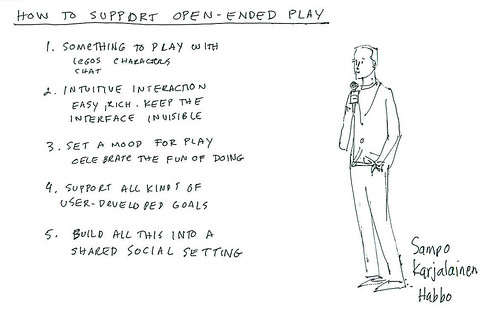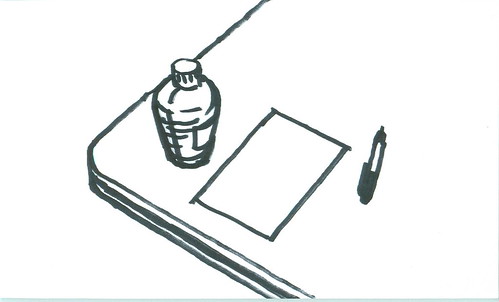23 April 2007
22 April 2007
19 April 2007
18 April 2007
15 April 2007
Self-Governing Workshops and Offices
 Conflict
ConflictNo one enjoys his work if he is a cog in a machine.
Resolution
Encourage the formation of self-governing workshops and offices of 5 to 20 workers. Make each group autonomous- with respect to organisation, style, relation to other groups, hiring and firing, work schedule. Where the work is complicated and requires larger organisations, several of these work groups can federate and cooperate to produce complex artefacts and services.
From A Pattern Language by Christopher Alexander
Tooth mapping
Five secrets of the curious infographic
 These are notes from a talk given at Malofiej 15 by Graphics Editor Marcello Valoncini.
These are notes from a talk given at Malofiej 15 by Graphics Editor Marcello Valoncini.1. Look forward. Don't stop with the news, simply reporting what has occurred.
2. Reach out. Don't be shy; call people and ask for details.
3. Watch TV. Look to the television medium for ideas and particulars.
4. Compare elements. Even if they seem absurd at first, comparisons help people understand things in a larger context.
5. Use the internet. It can deliver strange, funny or useful elements to enhance your story.
06 April 2007
What is an infographic?
 This year's Malofiej competition is notable because for the first time ever, an interactive graphic was the only winner for the "best in show" award.
This year's Malofiej competition is notable because for the first time ever, an interactive graphic was the only winner for the "best in show" award.This sparked a lot of conversation about "what is an infographic?" As infographics go online, the line between infography and software begins to blur. Where does infography end and interface design begin?
About a week ago I had an interesting conversation with Juan Velasco, Graphics editor of National Geographic, where we tried to answer some of these questions. It's the beginning of a manifesto -- can you help us make it better?
WHAT IS AN INFOGRAPHIC?
1. It's a visual explanation that helps you more easily understand, find or do something.
2. It's visual, and when necessary, integrates words and pictures in a fluid, dynamic way.
3. It stands alone and is completely self-explanatory.
4. It reveals information that was formerly hidden or submerged.
5. It makes possible faster, more consistent understanding.
6. It's universally understandable.
Please add your comments and thoughts.




